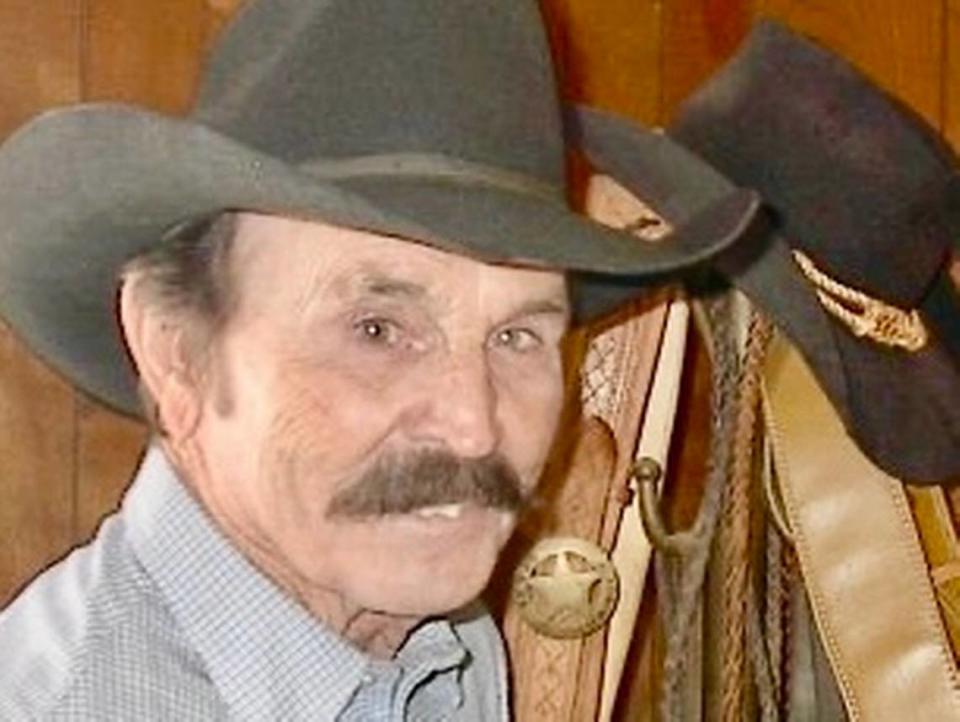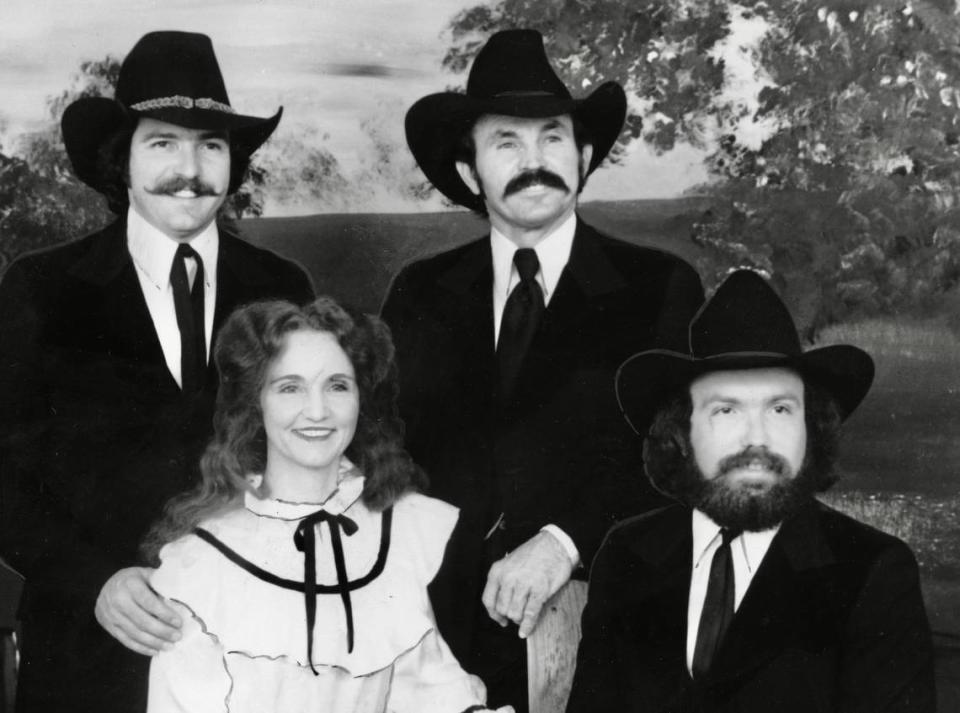Meet the bandleader behind the Texas Rangers’ ‘Cotton-Eyed Joe’: He told George Strait no
- Oops!Something went wrong.Please try again later.
Only one man played nearly 50 years for the Texas Rangers.
But the late guitarist Al Dean of San Antonio never set foot in the stadium.
Yet he binds Rangers fans of the 1970s to today’s — as the bandleader on the seventh-inning-stretch song at Globe Life Field and unofficial theme song, “Cotton-Eyed Joe.”
“Yes, sir, that’s me — and the Rangers are nice to send me a little money every time they play it,” Dean said in a 2010 interview, at home between gigs at a Veterans of Foreign Wars hall in Corpus Christi and at the Vaquero Festival in Hebbronville.
As the leader of Al Dean and The AllStars, Dean played rhythm guitar behind four fiddlers on the 1967 version of the centuries-old dance song that became the No. 1 most-played jukebox song in Texas history.

When the popularity of Texas music surged along with Willie Nelson’s career in the 1970s, Dean’s toe-tapping tune was picked up as stadium music, first by the basketball San Antonio Spurs and then, at least as far back as 1978 by the Rangers.
For years, Rangers announcer Chuck Morgan cued up an old 45-rpm single.
“It’s one of the few traditions we have,” Morgan said in 2010 before a Rangers playoff game.
He knew the fiddle song from his days as a Nashville disc jockey and as voice of the Grand Ole Opry.
“I was very aware of Cotton-Eyed Joe and this version by Al Dean,” he said.

The Rangers were already playing it when he came in 1983. He later remixed it to start with the more traditional “Take Me out to the Ball Game.”
“But I sure wasn’t going to come in and try to change it,” he said.
Dean grew up in South Texas, where southern fiddle music mixed with Czech, German and conjunto norteno influences to create a distinct Texas dance-hall sound.
He was 22 and working the oil fields in his hometown of Freer when he started singing in a band, the Texas Teenagers.
A rancher and rodeo cowboy, Gaston Mills of Alice, kept asking the band to play the “Cotton-Eyed Joe.”
“He would ask at every single show,” Dean said.
The band finally learned the song for a rodeo show in Tilden. It was 1953.
Mills was there.
“The first girl he danced with quit halfway through the song,” Dean said.
Dean worked days selling oilfield supplies and nights leading his band in dance halls across Central and South Texas.
One night at a rodeo in Dilley, he claims, a boy asked to sing with the band.
Dean told George Strait no.
Dean went on to cut several “Cotton-Eyed Joe” versions, some with vocals, but the hit is from his 1967 Texas to Nashville collection (now sold as “Kick’N”).
Dean assembled a 10-piece band — the AllStars — for dance songs from “Put Your Little Foot” to “A Jole Blon.”
“We wanted to take all the songs people danced to and do them with a big arrangement, the very best we could,” he said.
He added proudly: “It’s still selling.”

